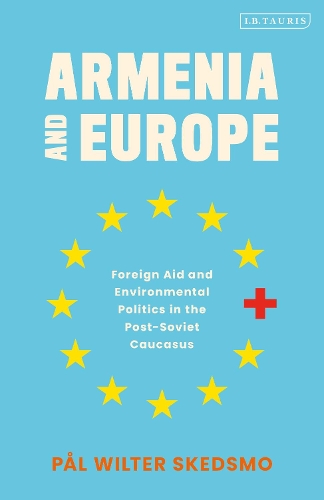
Armenia and Europe: Foreign Aid and Environmental Politics in the Post-Soviet Caucasus
(Paperback)
Available Formats
Publishing Details
Armenia and Europe: Foreign Aid and Environmental Politics in the Post-Soviet Caucasus
By (Author) Pl Wilter Skedsmo
Bloomsbury Publishing PLC
I.B. Tauris
20th May 2021
20th May 2021
United Kingdom
Classifications
Tertiary Education
Non Fiction
International law
Energy resources
947.56086
Physical Properties
Paperback
280
Width 138mm, Height 216mm
327g
Description
Armenia receives one of the highest levels of international aid per capita in the Western world, and among the highest of the post-Soviet states. This ethnographic study, based on new primary research, looks at aid in the South Caucasus, and its role in Armenias relationship with Europe. In particular, Skedsmo argues that the Aarhus Convention, which entitles citizens of Europe to access information and participation in decision-making in environmental matters has allowed Armenian citizens to adapt and control the direction of their countrys political future in various ways whether through protest activism or legal challenges. A new examination of aid and development, and the structures these create, Europe and Armenia will be an essential case study for scholars of development, for regional specialists in the post-soviet area (especially South Caucasus), social anthropologists, students of post socialism and development (postcolonialism). In addition, the book will be of interest for practitioners and European policy-makers, transnational organizations and others involved in development policies and projects in the region.
Reviews
Armenia and Europe is unique in the anthropological literature of the post-Soviet region for its focus on multi-lateral environmental governance and for its close-up view of the workings of a bilateral technical assistance project focused on this issue. Skedsmos effective combination of concepts from postsocialist studies, postcolonial studies and anthropological theorizations of global governance illuminates the significance of transnational networks and networking for understanding environmental struggles in Armenia and the importance of European norms in them. The book is important reading for scholars and development practitioners concerned with how and why activists and officials engage with globally circulating environmental norms. * Tanya Richardson, Associate Professor of Anthropology and Global Studies, Wilfrid Laurier University, Canada *
Author Bio
Pl Wilter Skedsmo is Senior Research Fellow and Research Director at the Fridtjof Nansen Institute in Norway.
